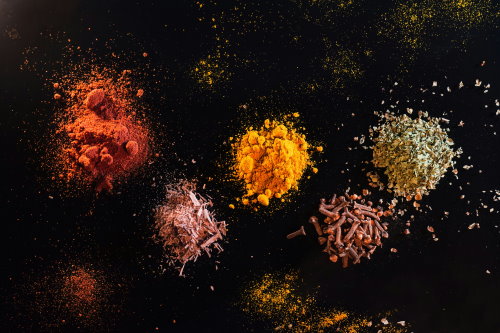There’s no cure for migraine, the neurological disease that typically causes episodes of head pain accompanied by nausea, dizziness, and sensitivity to light and sound. But by avoiding some of your personal migraine triggers, it may be possible to cut back on the frequency of these attacks.
One type of migraine trigger is food — and not just what you eat, but also when you eat it.
“While diet alone is rarely the cause of [migraine] headaches, it may well be involved as a trigger for migraine,” says Noah Rosen, MD, the director of Northwell Health’s Headache Center in Great Neck, New York, and an associate professor of neurology at the Donald and Barbara Zucker School of Medicine at Hofstra-Northwell in Hempstead, New York. “There are varying degrees of evidence for specific foods to be triggers, but there may also be a wide range of individual responses,” Dr. Rosen says.
BREAKING: Newly Legalized Herb Relieves Pain - Available Without A Prescription
What triggers your migraine attacks could be very different from what causes, say, your mother’s migraine attacks.
“People in the same family will likely share the same genetic predisposition for migraine but can have very different triggers,” explains Thomas Berk, MD, a neurologist and headache specialist based in New York City who is the medical director of Neura Health.
In general, though, going too long without eating or drinking can provoke head pain, according to Rosen, which could put some people at greater risk for a migraine attack than others. This includes “teachers, nurses, construction workers, truck drivers, or other professions where access to bathroom facilities drives underhydration,” he says.
“The ‘migraine brain,’ in general, doesn’t like change,” he says, “and avoiding or missing meals may be as important as what you eat.”
Any personal migraine food trigger — a single type of food or class of foods — may be difficult to pinpoint, but here are some usual suspects to watch for.
1. Caffeine
For some people, caffeine relieves a headache, but it’s a double-edged sword, says Rosen. When you use it every day, you can become dependent on it, and if you consume about 80 milligrams (mg) less than your usual amount, it can bring on a headache, he says. Since the amount of caffeine varies widely in drinks and foods like chocolate, it’s worth looking at your own daily use, he advises.
2. Aged Cheeses and Cured Meats (and Cottage Cheese?)
Aged cheeses like cheddar, Swiss, Parmesan, blue, and Brie contain a naturally occurring chemical called tyramine, which is a migraine food trigger for some people, according to the National Headache Foundation.
The nitrites or nitrates in salami and other cured meats are also thought to be a migraine trigger for some people. Plus, these foods are very salty, which can contribute to dehydration, Rosen says.
Cottage cheese, on the other hand, is widely held to be “safe” for migraine because it’s fresh, not aged, and contains low levels of tyramine. Some varieties may be salty, but if you notice a connection between cottage cheese and migraine attacks, there could be another explanation — you might be eating cottage cheese to satisfy a craving that happens early on in the course of a migraine attack.
3. Alcohol
It’s not so much the alcohol itself that’s associated with a migraine attack — it’s the withdrawal from it the next day, according to Rosen. And don’t blame the pinot noir just yet.
“There is no good evidence demonstrating red wine to be [more of a] trigger than other alcoholic beverages, but there is speculation that the tannins, sulfate preservatives, and other contaminants may play a role for individuals,” he says.
4. Monosodium Glutamate (MSG)
“We do know that glutamate is an excitatory neurotransmitter and can trigger a migraine attack,” Dr. Berk says.
Rosen points out that MSG is found not only in Chinese fast food but also in many prepared foods, including barbecue sauce and salad dressings.
5. Fresh Fruits
Along with other high-acid foods, citrus fruits are sometimes thought to cause gastric irritation and to trigger migraines, Rosen says. For this reason, some experts advise limiting their consumption — including citrus juices — to half a cup daily.
Bananas, on the other hand, can develop high levels of tyramine — the same chemical found in aged cheeses — if they become overripe. The same is true for avocados, which is why both may be migraine food triggers.
6. Chocolate
It may not always be a trigger — but chocolate may still precede a migraine. “It may be that your body craves chocolate prior to a migraine because the caffeine and antioxidants in chocolate can treat some of the symptoms of migraine,” Berk says. But it’s also plausible that dark chocolate, especially, may be a migraine food trigger because it contains caffeine, so you may want to watch how much of it you eat.
7. Spicy Foods
Chili peppers are probably more likely than any other kind of spicy food to trigger migraines, Berk says. “It’s likely that they react on certain pain receptors — called TRP receptors — in the brain that lower the threshold for developing a migraine,” he explains.
Very hot peppers may also be linked to what’s known as a thunderclap headache, in which severe head pain develops very quickly and lasts for at least five minutes.
TRENDING: Big Pharma In Outrage Over This Breakthrough Natural Painkiller
8. Foods or Drinks Containing Aspartame
9. Peanut Butter, Nuts, and Dried Fruits
Nuts — including peanuts and peanut butter — as well as dried fruits naturally contain high levels of a chemical called phenylalanine that can be a migraine trigger, according to the Association of Migraine Disorders. The same is true for dried fruits like raisins, dates, figs, and apricots.
What to Do if Food Triggers Your Migraines
If you suspect that certain foods may be triggering your migraines, try following these tips.
- Start a headache journal. If you aren’t sure what’s triggering your head pain, write down potential triggers, such as foods you ate or things you did shortly before your migraine attack started, says Berk.
- Eliminate the most likely migraine food triggers. “Whenever someone has very obvious food triggers, we definitely recommend avoiding those foods,” Berk says. “In general, we do not recommend being on specific ‘migraine diets,’ as studies have not shown any benefit in improving the frequency or severity of migraines with those diets.”
- Consider seeing a dietitian. “Weight loss in general is helpful in preventing migraines, and we sometimes refer people to a dietitian for that,” Berks says. Again, this is not to implement a specific “migraine diet,” but instead to get guidance on an overall healthy diet that encourages a healthy body weight.









